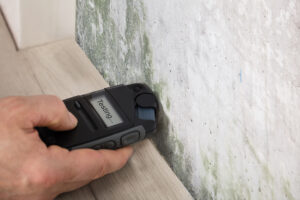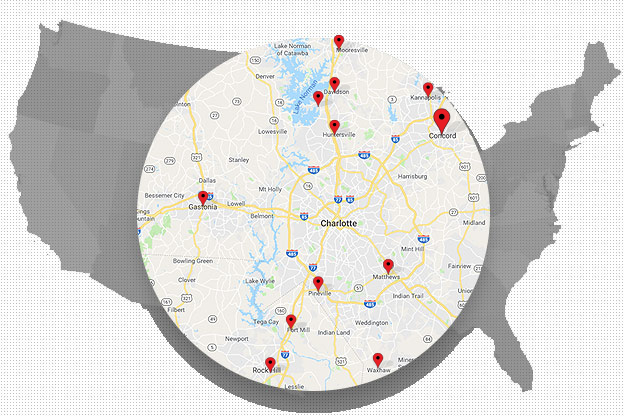Common Basement Moisture Issues and How to Fix Them

Do you have cracked drywall? Is there a musty smell coming from your basement? These are all signs that you have foundation issues.
The strength of your home depends on your foundation. As it begins to fail, the damage will work its way up through your home. This leaves your house vulnerable to structural failure.
Nine times out of ten, the problem will begin with basement moisture issues. If there are water leaks in your basement or there’s not enough air circulation, it will put a strain on your foundation.
These are only a few moisture issues to be on the lookout for in your basement. Continue reading to learn more.
Water Leaks
If your basement becomes flooded with water, the first thing you should do is check for interior leaks. Look over every appliance in your home that provides a source of water, including your shower, washing machine, toilet, and dishwasher.
If you find a busted pipe, you can repair the leak or replace the pipe yourself. If you don’t feel confident in your plumbing skills, call in a professional.
Landscaping Flaws
The grading around your home should be positioned in a way that points away from your home. This will allow sleet, rain, and snow to run downward away from your house.
If your landscaping isn’t correct, moisture will be allowed to accumulate around your foundation. Over time, the water could seep right into your basement.
The best way to fix the issue is to get on the phone with an architect. You can also dig a trench around your home or line the base of your house with rocks.
Foundation Wall Leaks
If the floor joists in your basement aren’t properly connected to the walls, your foundation will be allowed to shift. This will cause cracks to form, which will leave your basement vulnerable to flooding.
To deal with this problem, you first have to determine that the cracks were caused due to improper connections. If they were, you can seal the cracks by installing the right footing.
If the cracks were naturally occurring due to your home settling, you can seal them with caulk.
Defective Gutters
Gutters have an important job. They redirect rain and sleet away from your home’s foundation.
If they aren’t working the way they should, or you don’t have gutters, rainwater will be allowed to gather around your foundation. Depending on how much rain you get, the water will end up in your basement.
So, if you don’t have gutters, consider installing a few downspouts. To prevent water buildups, clean your gutters twice a year. The only things you need for the job are a ladder, gloves, and a kitchen spatula.
Lack of Circulation
Basement moisture issues don’t always show themselves in the form of floods. Sometimes the problem is damp air.
If the room doesn’t get enough circulation, the air will become trapped and turn into condensation. This problem gets especially bad if you have pipes and ducts in your basement that connect to an air conditioner.
The easiest way to fix it is to give the air a place to go that isn’t your basement. If you can, install a few exhaust fans. This will move the air around and allow it to distribute evenly.
You can also cover your walls and ducts with insulation to keep the damp air away from them.
Window Wells
If your window wells aren’t working, water will build up and leak into your basement every time your area experiences a rain shower.
The best way to fix the problem is to have a new drain installed. If you haven’t had the gravel in your window wells replaced in a long while, now might be the time. You can also buy window well covers.
Poor Drain Tile or Sump Pit
In the past, basements were a place to retreat during times of dire emergencies. There aren’t a lot of older homes that have a proper drainage system.
Most modern homes have them, but they often fail due to pressure from the ground.
If this is your problem, it’s going to take a lot of work to fix it. A professional will have to dig up your old drainage system or take the time to install a sump pump. It’s not something you can do yourself unless you have in-depth plumbing knowledge.
The Walls Aren’t Waterproof
The most vulnerable part of your basement is the walls. Without proper waterproofing, moisture will seep in and lead to cracks.
There are multiple waterproofing options you can choose from. You can have the walls covered with water-resistant paint. We can also install a waterproof membrane.
Whatever method you choose, it will increase the lifespan of your basement by many years.
Garden Sprinklers
Automatic garden sprinklers can keep your flowers nice and healthy, but they can also pour water into your basement.
That doesn’t mean you need to get rid of your sprinkler system. As long as you place it more than 4 feet from your house and keep an eye on it, it shouldn’t pose a problem.
Common Basement Moisture Issues to Be Aware Of
Basement moisture can cause cracks in your foundation and lead to mold. The good news is that there are ways to combat it.
Consider installing gutters, make sure your garden sprinklers are 4 feet away from your home, and invest in a few exhaust fans.
If you would like help with waterproofing your basement, contact us today to get a free estimate.
Recent Posts
- How Crawl Space Encapsulation Benefits the Environment – An Expert Guide
- 6 Ways Professionals Keep Your Crawl Space in Top Shape
- Structural Repair Solutions for Crawl Spaces, Basements, and Foundations
- Essential Crawl Space Repair Tips Every Homeowner Should Know
- The Importance of Radon Mitigation: Ensuring a Safe Living Environment for Homeowners
Categories
- Basement Mold
- Basement Waterproof Foundation
- Basement Waterproofing
- Crawl Space Dehumidifier
- Crawl Space Encapsulation Cost
- Crawl Space Repair
- Crawl Space Waterproofing
- Encapsulation
- Foundation Repair
- Foundation Waterproofing
- French Drains
- Leaky Basement
- Mold Remediation
- Mold Removal
- Radon
- Slab Jacking
- Sump Pump
- Uncategorized
- Vapor Barrier
- Water Leak
- Waterproofing
- White Mold
Archives
- June 2024
- May 2024
- March 2024
- January 2024
- June 2023
- May 2023
- April 2023
- March 2023
- February 2023
- January 2023
- December 2022
- November 2022
- October 2022
- September 2022
- August 2022
- July 2022
- June 2022
- May 2022
- March 2022
- February 2022
- January 2022
- December 2021
- November 2021
- October 2021
- September 2021
- August 2021
- July 2021
- June 2021
- May 2021
- April 2021
- March 2021
- February 2021
- January 2021
- December 2020
- November 2020
- October 2020
- September 2020
- August 2020
- July 2020
- June 2020
- May 2020
- April 2020
- March 2020
- February 2020
- January 2020
- December 2019
- November 2019
- October 2019
- September 2019
- August 2019
- July 2019
- June 2019
- May 2019

